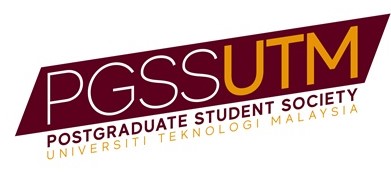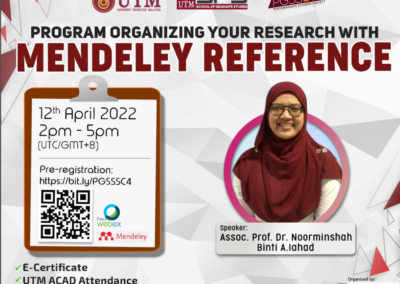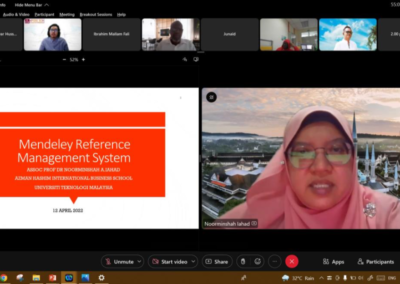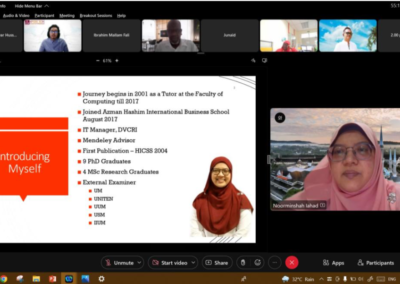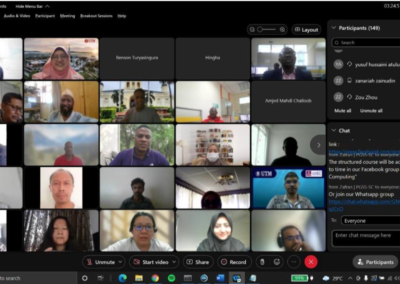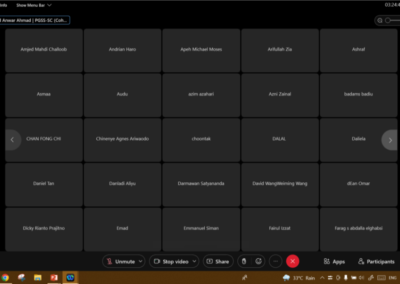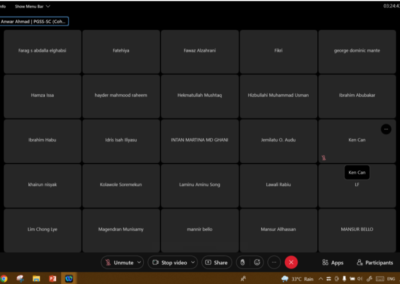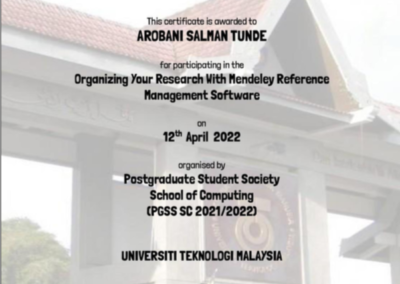21 April, Johor Bahru – On 12th April 2022, an online structured course Program Organizing Your Research With Mendeley Reference was organized to share on how to use the Mendeley Reference to efficiently manage references and ease the citation process. The structured course started at 2pm and ended at 4.40pm using Cisco WebEx online conferencing platform. This course was organized by the Postgraduate Student Society School of Computing (PGSS-SC), with Muhammad Anwar Ahmad as the moderator. This session was successfully held with the PGSS-SC committee’s help, Muhammad Zafran Muhammad Zaly Shah, Asraful Syifaa’ Ahmad and Muhamad Farhin Harun.
This course received 332 online registrations, and there were 248 participants who turned up for the event that had registered. There are 62.0% Ph.D. level participants, 23.3% Master degree level participants, 7.2 % Bachelor level participants, and the rest did not disclose their level of study. We also received participation from UTM staff. Additionally, 79.0% are from UTM, and the rest is non-UTM and also alumni.
The honorable speaker for the program is Associate Professor Dr. Noorminshah Binti A.Iahad. Dr. Minshah is an associate professor in Department of Information Systems, Azman Hashim International Business School, AHIBS UTM. Moreover, she is currently the IT Manager at the office of Deputy Vice Chancellor (Research & Innovation). She is currently the President of Malaysia Association for Information Systems and is an IEEE member. Dr. Minshah graduated for her undergraduate study at the University of Malaya, Kuala Lumpur, Malaysia. She had been exposed to developing web based applications since her Industrial Application practice in 1999. She joined the Information Systems Department at the Universiti Teknologi Malaysia as a tutor in 2000. She had a year of teaching experience before continuing her studies for MSc in Information Systems Engineering at the Computation Department, University of Manchester Institute of Science & Technology (UMIST), Manchester. She did her PhD at the School of Informatics, The University of Manchester. According to UTM Scholars website, Dr. Minshah has 64 publications and 32 students under her supervision.
The course starts at 2pm with the moderator briefly introducing the speaker, Dr. Minshah’s background. Then, the floor was given to the speaker and she started with further introduction to her background including her past achievements. Then she begins the talk with what will the participants learn throughout the course. Before proceeding, she explained the differences between Mendeley and Endnote, another popular reference management software. She also emphasized that one cannot rely 100% on the software and need to manually check if the output of is correct and adjust accordingly. Then, she shared on the long term goals of doing PhD, and the importance of publishing, building up research profile and building the thesis from time to time. She adviced to use the available platform such as Google Scholar, SCOPUS ID, ResearchGate and PUBLONS. The speaker also stresses on the consistency of writing, especially on name, email address, and affiliation.
Afterwards, she moved on to the general functions of Mendeley, such as storing, organize, note, share and cite references and research data. Then, she explained that Mendeley is currently in the process of moving to a new version. The old Mendeley Desktop will be phased out by the new Mendeley Reference Manager and the citation tool Microsoft Word Citation Plugin will be phased out by Mendeley Cite by 1st September 2022. Next, she started to focus on registering and using the Mendeley web app. She showed how to search and import articles using the search function into the library. After that, she showed how to download the desktop version of the manager, in which is the same as the web app but using a stand alone software instead. She also stresses on using the import library method (BibTeX, RIS, XML) instead of using the import file or adding manually since the data will be more complete. Next, she showed on how to add the Mendeley Web Importer to the browser, and explained how to import articles from various other websites. The speaker also covered on the annotations and notebook functionality of Mendeley. After importing the articles, users can view the articles and add annotations to refer later when writing their own thesis/articles. This is a very useful function as users can add as many annotation as they want. The notebook function is also useful as users can collect important points from various articles and group them together while also linking each points to the respective articles.
The final topic covers on adding the citations and bibliography in an article using Mendeley Cite plug-in. One can install the plug-in from Microsoft AppSource website or directly in Microsoft Word under the Insert tab and clicking Get Add-ins button. Next, the speaker shared on how to add citations in a paragraph and automatically generate bibliography using Mendeley Cite. The speaker also talks about which citation style to use, and showed how to change the citation style in the Mendeley Cite. She mentioned that it is the student’s responsibility to confirm the citation style with faculty (if writing thesis) or journal template (if writing paper). Finally, she adviced that if users have any issues regarding the software in the future or have any suggestions, they can forward it to the Mendeley Support Center in the website.
The speaker’s session ended around 4pm. Afterwards, a Q&A session was held until around 4.30pm. There were many excellent questions and the speaker manages to answer all the questions. To wrap up the course, a photography session was held and the moderator took screenshots of all the participants. Overall, the structured course was held without any major issues. There were some slight interruptions with questions from participants in the middle of the talk session but the moderator had quickly adviced to hold on to their questions until the Q&A session.
To conclude, the participants appreciate all the efforts by the SPS UTM and PGSS SC as the organizers and some suggested to do a hands on session about using the software since it can get overwhelming to learn from an online course. Additionally, 187 out of the 248 participants rate this structured course 4 and 5 stars in terms of the overall rating. From the feedbacks, the participants are very satisfied with Dr. Minshah’s explanation and insight into this topic. This course outcome will give a boost to motivation for PGSS SC to organize more workshops like this.
